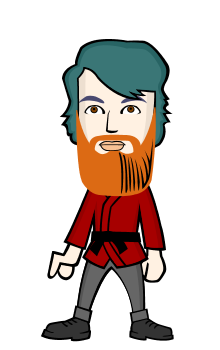Arendt admits that her distinction is unusual as it has not been attempted previously by the thinkers who concerned themselves with the subject, like for instance Karl Marx, yet it cannot be ignored. Labor is one of the three fundamental forms of activity that form the vita activa. It is repetitive, never-ending and only includes the activities that are necessary to the sustenance of life, such as the production of food and shelter as well as physical reproduction, with nothing beyond that. The condition to which labor corresponds is sheer biological life. Socially, it was the type of life that was destined for slaves in the Ancient Greek city-states. Within this life-world, slaves were considered as such not due to the harshness of their lives but mainly because these lives were composed of necessity alone, as a sum of their own physical needs and the ones of their masters added on it. The products of Labor is thus consumed as soon as it is produced without leaving any lasting trace behind. Work on the other hand, being the second activity, has a clearly defined beginning and end. It leaves behind an enduring artefact such as a tool, a manuscript, or a building. The condition to which this activity corresponds is the World and was socially connected with the free citizens of the ancient city-states, especially their acts in the realm of politics they were called to undertake. As the ancient world-view which sustained these concepts gave way to the modern however, political life waned and the private life of necessity entered the public realm. This led Labor out of the constraints of the household to become a significant value on its own right. In modern day democracies therefore, the concept of equality which is considered to be one of its pre-conditions, has been skewed into one of similarity as it is now based on common necessity, the realm of Labor. Arendt points out that equality can only be applied to things that are unequal like the distinct personalities of free citizens. Necessity is what is similar to humans and thus equating people under Labor is not real equality but a kind of debasement.
IV - Action[edit]
The third activity, that of great deeds and great words, is specifically political and properly construed can only take place in the public realm potentially leading to the only form of immortality properly accepted in ancient Greece, that of creating something lasting within the world. This world is also made common through action. It necessitates speech (logos), since the actor needs to declare his or her unique existence in order for that action to be considered human. Other actions exist of course, such as bartering goods in a market, that do not require such a unique declaration. These however are products of the subject's necessity (ex. obtain food to survive) and not some unique individuality which is properly his. In this sense, worker's equality is almost a tautology, since it equates people through the basic human condition of need, while citizen's equality is by definition equality of unequals that are trying to create a common world. Its corresponding conditions are natality and plurality. Action can never manifest through a predictable, deterministic series of consequences, since the subject, by acting, is placed within a complicated web of relationships which cannot be predicted before hand. In the same sense, Action is irreversible.
V - The Vita Activa and the Modern Age[edit]
Arendt records the decline of what the Ancient Greeks understood as the Public Sphere, as a place where immortality can be attained through great works and lasting deeds. This happened mainly through a shift of focus from the immortality of the human world into abstract concepts of the mind, as the importance of the human senses as a source of objective knowledge about the world declined. "Cartesian doubt", as she calls the notion that a person's senses could be presenting him with a false world, an illusion, possibly created by some malevolent god (dieu trompeur), is best expressed in the phrasecogito ergo sum (I think, therefore I exist), meaning that the only thing a person can be certain of is not the world around him but his own cognitive process. This great shift prepared the world for Galileo's heliocentric universe in which the possibility of attaining immortality through lasting deeds (Action) was completely lost. Arendt also observes the evolution of scientific thinking from the "world-bound" geometry of the ancient world, to the abstract concepts of algebra without which Newton could never have formulated his Universal Laws.



